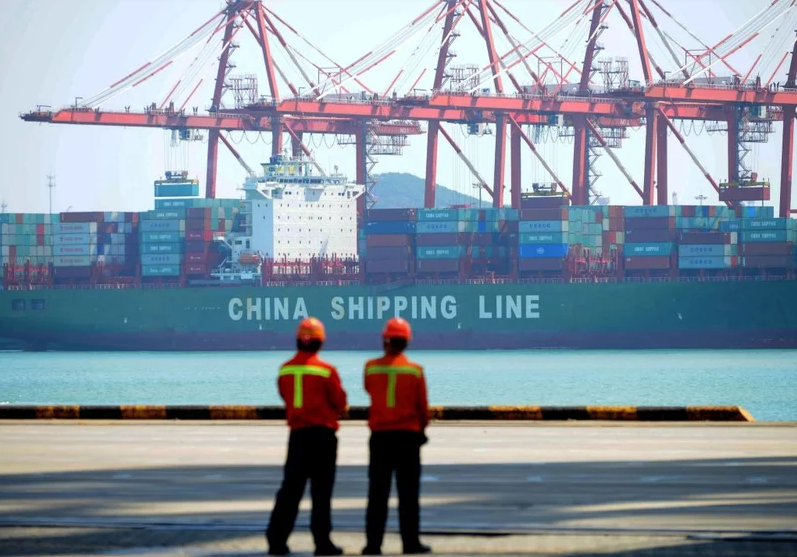Officials in Beijing are busy trying to secure China’s share of global trade, as the Trump administration in Washington D.C. continues to make threats to impose tariffs on an increasing number of Chinese goods. To shore up its regional leverage, Chinese officials have been busy trying to strike more deals with China’s western neighbor Kazakhstan.
Some believe Central Asian countries, which include Kazakhstan, can benefit from what have been dubbed ‘Trump’s trade wars’, while others are reluctant to jump to any quick conclusions.
Dauren Oshakbayev, an economic expert from Kazakhstan, says that while China is searching for regional markets for products normally purchased from the United States, Kazakhstan will not profit from the situation. One American export to China is soybeans.
“Kazakhstan is like a drop in the ocean in the Chinese market – China buys about 80 million tons of soybeans a year, while Kazakhstan does not produce even half a million,” Oshakbayev said, according to reports by 365info.
“China will now buy up the goods it needs from everywhere, it does not matter. Yes, [Kazakhstan] will increase supplies, but it will not be a huge increase.”
Since early 2018, the Trump administration has been imposing tariffs on Chinese goods as part of President Trump’s new protectionist policies, which he says are in the interests of U.S. national security and the intellectual property of American businesses, as well as help reduce the trade deficit with China.
China responded in kind with similarly sized tariffs on American-made products, and has been busy looking for alternative markets for what would normally be American imports into China. While Kazakhstan may not luck out on increased soybean exports, it is making good with increased wheat exports. As of March 2018, exports were up by 50 percent.
But Rustem Zhanseitov, an economist from Kazakhstan, warns that Kazakhstani officials should be careful.
“China and the United States are very closely related and need each other. What is sold in the U.S. is mostly produced in China. I think all these Trump-led trade wars are temporary, they will not last long. Therefore, we cannot build anything long-term on this basis,” Zhanseitov was quoted as saying by 365info on July 30.
Meanwhile, China is considered Kazakhstan’s second-largest trade partner behind Russia. In 2017, Kazakhstani exports to China totaled $5.8 billion, outpacing import from China of $4.7 billion. Russia topped the list of Kazakhstan’s trade partners in 2017 with nearly $16 billion, according to Kazakhstan’s statistics committee.
Kazakhstan provides China mostly with petroleum, copper, uranium, ferroalloys, zinc, iron and sulfur, as well as wheat and sunflower seeds. In turn, Kazakhstan absorbs Chinese-made products such as mobile phones, computers, stop valves, metal pipes, metal rolling, centrifuges, metal structures, shoes, cable conductors, liquid pumps, industrial equipment, air conditioning, electrical equipment, metal pipe fittings, tires, polyvinyl chloride, bicycles and lifting devices.
Trade and investment connections between Kazakhstan and China run deep. After almost 27 years of Kazakhstani independence from the USSR, China has invested $16 billion in what is Central Asia’s largest economy.
Trade between the two Asian countries at the Khorgos Eastern Gate Special Economic Zone increased at a fast pace in the last six months, reaching nearly 20.7 billion Chinese yuan ($3 million), according to data provided by the Xinjiang Uygur Autonomous Region’s statistics agency and reported by Xinhua. According to reports, trade within what is the world’s largest dry port jumped by almost 38 percent when compared to the same period in 2017.
Within Kazakhstan’s five-year plan covering 2015-20, the two countries launched the Khorgos Eastern Gate Special Economic Zone, located six kilometers away from the Altynkol border crossing between Kazakhstan and China. The economic zone gives Kazakhstan access to the Western Europe-Western China highway, which is the country’s longest road, running a total length of 8,445 km. Approximately 65 trains per month move through Khorgos.







 Russian peacekeeping forces, deployed in the Karabakh (Garabagh) region of Azerbaijan since 2020, have commenced their withdrawal from the area.
Russian peacekeeping forces, deployed in the Karabakh (Garabagh) region of Azerbaijan since 2020, have commenced their withdrawal from the area.
 The Islamic holy month of fasting, Ramadan comes to an end this week with the celebration of a joyous festival called Eid (meaning “festival” in Ar...
The Islamic holy month of fasting, Ramadan comes to an end this week with the celebration of a joyous festival called Eid (meaning “festival” in Ar...
 Azerbaijan officially unveiled the logo for the upcoming 29th session of the Conference of the Parties to the United Nations Framework Convention o...
Azerbaijan officially unveiled the logo for the upcoming 29th session of the Conference of the Parties to the United Nations Framework Convention o...
 Iranian President Ebrahim Raisi warned Israel that it would face a "real and extensive" response if it makes any "mistake" following Tehran’s missi...
Iranian President Ebrahim Raisi warned Israel that it would face a "real and extensive" response if it makes any "mistake" following Tehran’s missi...



